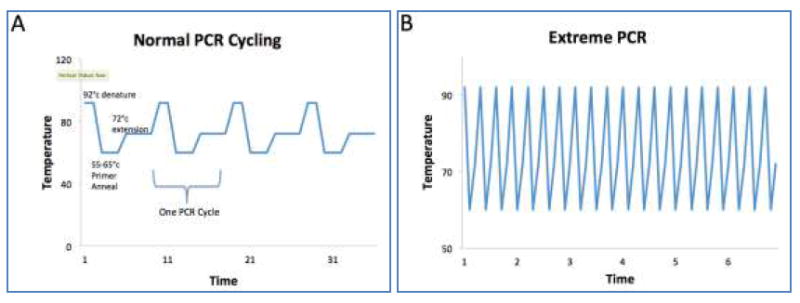Figure 3.

Cycling differences between traditional versus extreme PCR
A comparison of traditional PCR (Panel A) and extreme PCR (Panel B) demonstrates the key concept in this method is to push the limits of the reaction time by allowing for traditional PCR cycle steps to occur faster. Traditional PCR requires time to ramp up to 92°c for denaturation, ramp down to primer annealing temperatures between 55-66°c, and ramp up to 72°c for extension of the new DNA; making a typical PCR reaction 4-7 minutes per cycle. By comparison, extreme PCR do not have the lag time required for temperature changes and the PCR cocktails are optimized for near instant reaction speeds allowing for a PCR cycle to occur in less than one minute.
